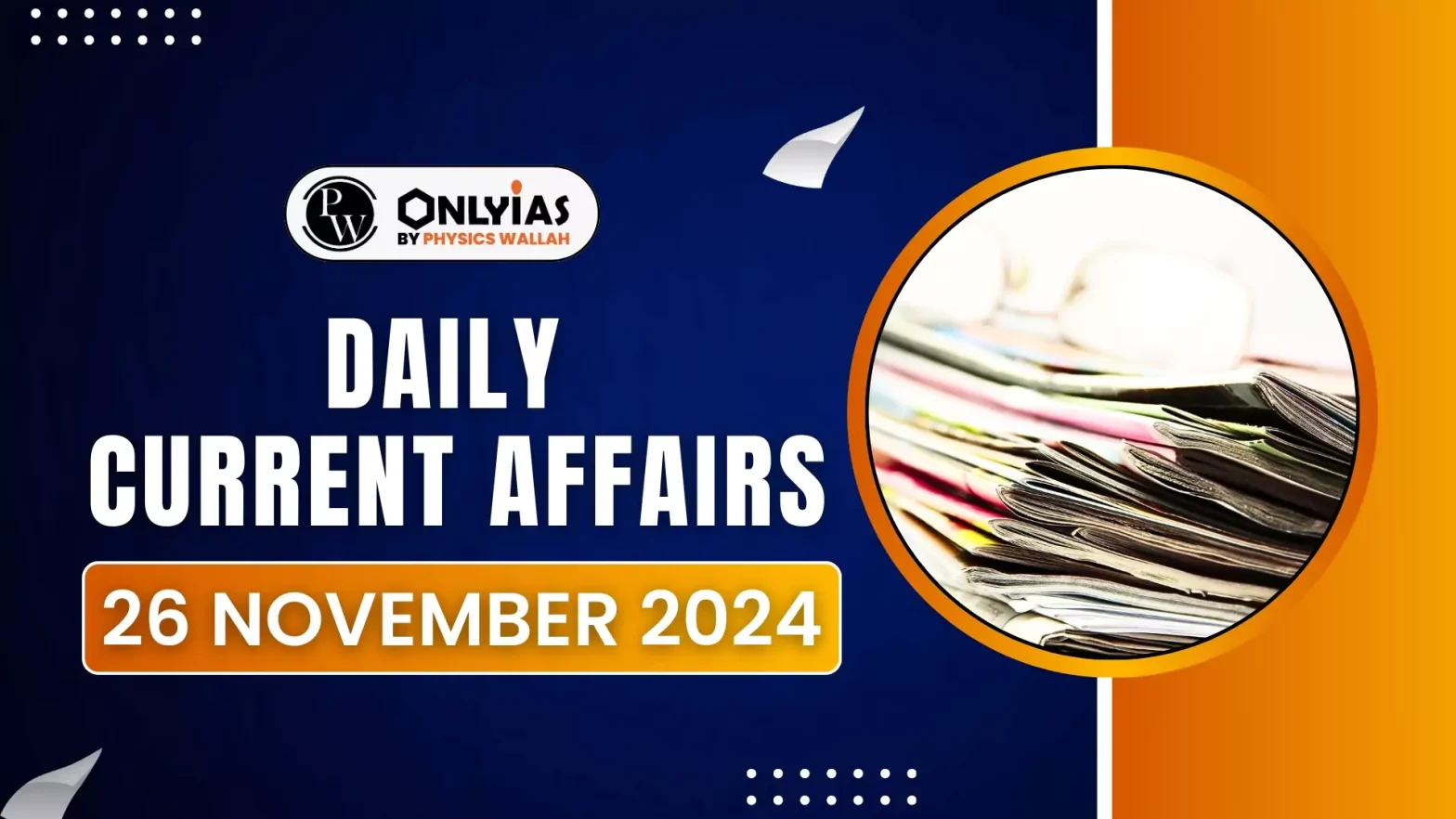The Supreme Court granted the Centre four weeks to decide on Balwant Singh Rajoana’s mercy petition.
Key Highlights of the Case
- Matter of the case: The mercy petition is for the death sentence awarded to Rajoana in 2007 for the assassination of former Punjab Chief Minister Beant Singh in 1995.
- Current Status: Rajoana filed a fresh plea for the commutation of his sentence, with the SC directing the Centre to decide within the given timeframe.
About Mercy Petition
- A mercy petition is a formal request made by an individual sentenced to death or imprisonment, seeking clemency from the President of India (under Article 72) or the Governor of a State (under Article 161).
- This power allows for pardons, reprieves, respites, remissions, or commutations of sentences.
Enroll now for UPSC Online Classes
Famous Mercy Petitions in India
- Yakub Memon Case (1993 Mumbai Blasts) :Yakub Memon, a key conspirator in the 1993 Mumbai serial blasts, was sentenced to death. He filed a mercy petition before the President of India, which was rejected.
- The Dhananjoy Chatterjee Case (1994): A death row convict who sought mercy from the President. His case sparked debates on the death penalty and the role of mercy petitions.
- The Rajiv Gandhi Assassination Case (1991): Several convicts involved in the assassination of former Prime Minister Rajiv Gandhi filed mercy petitions, raising questions about justice and the death penalty.
- The Nirbhaya Case (2012): The four convicts in the brutal gang rape and murder case sought mercy from the President, leading to widespread protests and discussions on the judicial process and capital punishment.
Constitutional Provisions for Mercy Petition
- Article 72 (President’s Power): The President has the authority to grant clemency in the following cases:
- Court-Martial Sentences: For punishments or sentences awarded by military courts.
- Union Law Offences: For offences against laws related to matters under the Union’s executive power.
- Death Sentences: In all cases involving the death penalty.
- Article 161 (Governor’s Power): The Governor can exercise similar clemency powers for offences against laws related to matters under the State’s executive power.
- Supreme court power: The Supreme Court’s power to review mercy petitions is not explicitly mentioned in the Indian Constitution.
- However, it is derived from its inherent power of judicial review under Article 32 of the Constitution, which guarantees the right to constitutional remedies.
- SC can review the exercise of the power of pardon by the Governor or President and quash it if found to be arbitrary or mala fide.
Difference in Power of Governor and President in Mercy Petitions
| Power |
Governor |
President |
| Pardoning Power |
Can grant pardons, reprieves, respites, or remissions of punishment or suspend or remit sentences in certain cases. |
Can grant pardons, reprieves, respites, or remissions of punishment or suspend or remit sentences in certain cases. |
| Death Sentence |
Cannot pardon death sentence. |
Can grant pardons, reprieves, respites, or remissions of punishment or suspend or remit sentences in death sentences. |
| Court-Martial |
No power to pardon in cases of court-martial. |
Can grant pardons, reprieves, respites, or remissions of punishment or suspend or remit sentences in certain cases, including those awarded by a court-martial. |
| Jurisdiction |
Offences against state laws. |
Offences against central laws. |
Key Features of Mercy Powers
- No Time Limit: Articles 72 and 161 do not prescribe a specific time frame for deciding mercy petitions.
- Discretionary Nature: These Articles do not impose any obligation on the President or Governor to accept all mercy petitions.
- Broad Scope: Mercy can include pardons, reprieves , respites,remissions or commutations.
| Type of Mercy |
Description |
| Pardon |
- Completely absolves the convict of the crime, erasing the conviction and all associated penalties.
|
| Commutation |
- Substitutes a harsher punishment with a lighter one.
|
| Remission |
- Reduces the period of the sentence without changing its nature.
|
| Reprieve |
- Temporarily postpones the execution of a sentence, usually for a short period.
|
| Respite |
- Similar to reprieve, but for a longer period and often for medical reasons.
|
Check Out UPSC NCERT Textbooks From PW Store
Process of Filing a Mercy Petition
- There is no statutory written procedure for filing or processing a mercy petition.
- Receives Petitions: The Ministry of Home Affairs (MHA) receives mercy petitions addressed to the President.
- Scrutiny: MHA examines the petition, case records, and recommendations from the concerned state government.
- Recommendations: MHA prepares a detailed report and recommends a course of action to the President.
- President’s Decision: The President, acting on the advice of the Council of Ministers, makes the final decision on the mercy petition.
- Communication: MHA communicates the President’s decision to the concerned authorities.
- The President is not bound by the advice of the Council of Ministers, but in practice, the recommendations of the Ministry of Home Affairs are usually followed.
![]() 26 Nov 2024
26 Nov 2024

